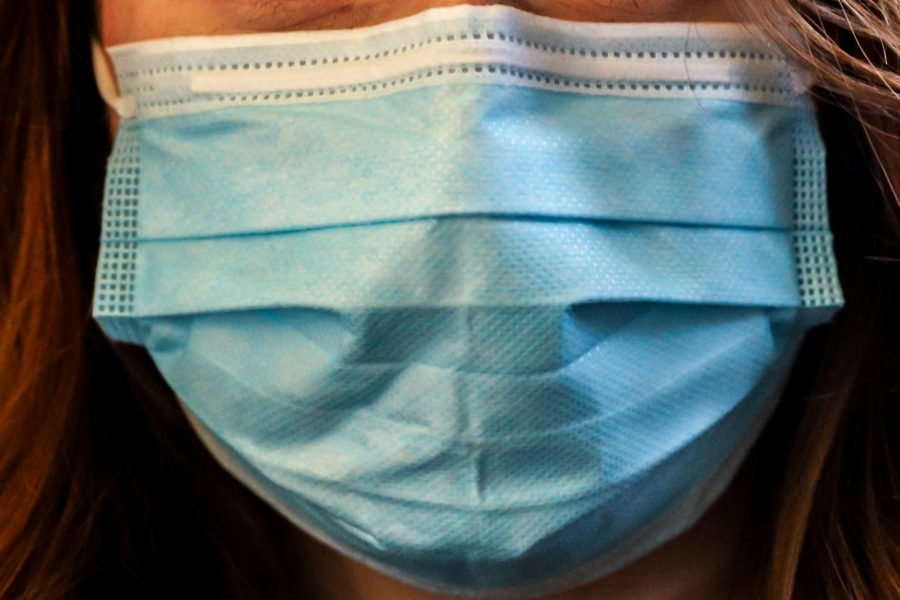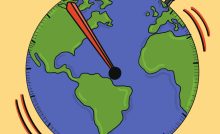Editorial | CDC’s updated mask guidelines fail to consider social consequences


Barring disaster, America is in the home stretch of the COVID-19 pandemic. Of the total U.S. population, 48% is fully vaccinated against COVID-19 and, if we maintain our current rate of vaccination, herd immunity could be achieved by the fall. This is excellent news and we shouldn’t shy away from celebrating — the pandemic has been fraught with anxiety and hardship for many.
All three of the vaccines currently available in the United States offer strong protection against serious illness and multiple studies confirm a lower risk of infection among vaccinated individuals. The U.S. Centers for Disease Control and Prevention know this, which is why they took the scientifically logical step last Thursday to announce that fully vaccinated individuals no longer need to mask up in most settings. We can’t fault the updated guidelines in this regard. But if public health messaging ended at science, COVID-19 would likely be in the rearview mirror.
The reality is that every press release and guideline offered by the CDC has profound social implications. Case in point — a Morning Consult Poll conducted between last Friday and Monday indicates that unvaccinated Americans are about twice as likely to go maskless in various public settings. While it’s easy to dismiss this as the vaccine-hesitant only hurting themselves, the majority of unvaccinated Americans are not outright anti-vax. The updated guidelines and their interpretation by mask and vaccine skeptics puts those who are not yet immunized, but wish to become so, at unnecessary risk.
In the absence of a federal recommendation for universal masking, attention once again turned to state governors. One after another, state mandates have been amended to match CDC guidelines or weakened even further.
The private sector is also dealing with the fallout. Many companies, including Walmart, Target and Disney, are now allowing fully vaccinated customers to go mask-free without proof of immunization, relying on an honor system. While this is a pleasant idea, it ignores the bitterly partisan nature of masks and the data on who will continue to wear them. But the brunt of the criticism should not fall on businesses. The CDC has shown shockingly poor judgement when it comes to the “public” half of “public health” time and again.
In fact, just last month the CDC temporarily paused the use of the Johnson & Johnson vaccine in response to rare instances of blood clots among recipients. While this decision conformed to medical and scientific standards of safety, there was seemingly little foresight about the social consequences. That 10-day pause likely prevented millions of shots from being administered, and resulted in thousands of Americans contracting COVID-19 who wouldn’t have otherwise. Furthermore, one in five adults say that the pause prompted them to renege on getting the vaccine.
The CDC is struggling with poor public health messaging once again. Unfortunately, it would be both damaging to public confidence and highly impractical to reverse the updated guidelines — the cat is out of the bag and anti-maskers couldn’t be happier. But when the next major loosening of restrictions comes around, the CDC must consider not just the scientific, but the social consequences of their highly anticipated and frequently misinterpreted guidelines.
Recent Posts
Notes From an Average Girl // Notes on Book Banning
In this edition of Notes From an Average Girl, senior staff writer Madeline Milchman writes…
To Be Honest // Yup, it is that damn phone
In this edition of To Be Honest, staff writer Evin Verbrugge writes about her phone…
Meaning at the Movies | Portraying Toxic ‘Adolescence’
In this edition of Meaning at the Movies, staff writer Lauren Deaton explores the mini-series…
Opinion | Climate change requires radical, immediate action
Contributing editor Emma Hannan talks about the effects of climate change and the actions cities…
Jaland Lowe enters transfer portal, becomes fifth Panther to jump ship
On Tuesday morning, it was announced on X that Pitt sophomore guard Jaland Lowe was…
College Democrats and Republicans debate pressing political topics
Around 100 students gathered to watch Pitt’s College Democrats and College Republicans debate a variety…

